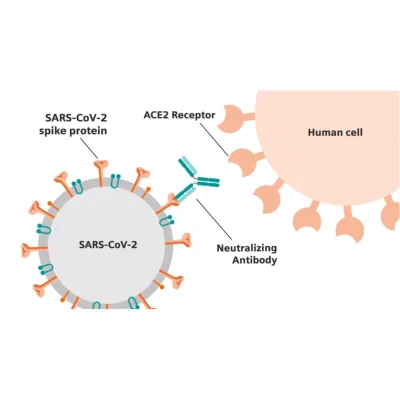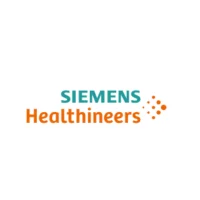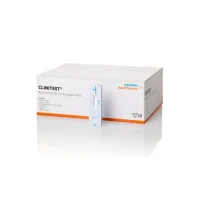- The collaboration will standardize SARS-CoV-2 assays by defining concentrations of antibodies to specific viral proteins to confer neutralization that could one day be extrapolated to thresholds considered sufficient to confer immunity.
- Standardization across manufacturers is also expected to improve patient care by enabling long-term antibody level comparison.
Siemens Healthineers announced today a collaboration with the U.S. Centers for Disease Control and Prevention (CDC) and the JRC (Joint Research Centre) of the European Commission on a research project to develop a novel process for standardizing SARS-CoV-2 assays.
Antibody tests differ among test manufacturers and currently cannot be analytically compared because they target different SARS-CoV-2 proteins. These include the spike protein, S1/S2, S1 RBD, and N protein, which are found in different parts of the SARS-CoV-2 virus. As the pandemic has evolved, antibody test results have progressed from qualitative positive/negative results to more recent assays capable of numerical measurements that gauge the level of IgG antibodies in a patient’s blood sample.
The reportable numerical patient results of the current semi-quantitative assays are expressed in units that are not actual concentrations of antibodies, but rather the antibody activity to the virus. Because comparing test results across manufacturers has not been possible, establishing immunity associated with these tests has been challenging.
Siemens Healthineers' collaboration with the CDC and the JRC will develop a novel process for standardizing SARS-CoV-2 assays by anchoring each protein to a neutralization antibody titer—a level of antibody present to block virus from entering cells in laboratory experiments. The thresholds displayed in the standardized unit of measure for IgG—arising either from natural infection or vaccination—may likely contribute to a standardized interpretation of immunity through test results.
"One barrier to antibody test adoption is we don't currently have an established process to determine immunity," said Deepak Nath, PhD, President of Laboratory Diagnostics, Siemens Healthineers. "Different SARS-CoV-2 antibody targets produce different levels of neutralization. Our R&D team recognized that if you could define a level at which neutralization is conferred for different targets, you could create a common ground to standardize assays—not just on antibody production, but their ability to provide immunity. Our collaboration with the CDC and JRC will develop the framework that all antibody test manufacturers would be expected to adopt moving forward for greater benefit to patient care as the pandemic evolves."
Developing a standardized process will define which concentration confers neutralization for different manufacturers’ antigen targets. Each manufacturer currently standardizes their assays independently with internal standards that are not linked to a common reference. The results of this collaborative research project will support the JRC's production of a reference material. This reference material with assigned concentrations of antibody specific to each viral protein will allow manufacturers to refer to standardized values.
With an international standard established and adopted by manufacturers, clinicians would be positioned to track their patients' antibody concentrations, regardless of the test method or manufacturer used. This capability is expected to improve patient care by enabling long-term antibody level comparison—clinical information that is important for verifying natural immunity acquired by patient’s infection with the virus, as well as for determining the effectiveness of vaccines.


![Tuberculosis Diagnostics: The Promise of [18F]FDT PET Imaging Tuberculosis Diagnostics: The Promise of [18F]FDT PET Imaging](https://res.cloudinary.com/healthmanagement-org/image/upload/c_thumb,f_auto,fl_lossy,h_184,q_90,w_500/v1721132076/cw/00127782_cw_image_wi_88cc5f34b1423cec414436d2748b40ce.webp)






